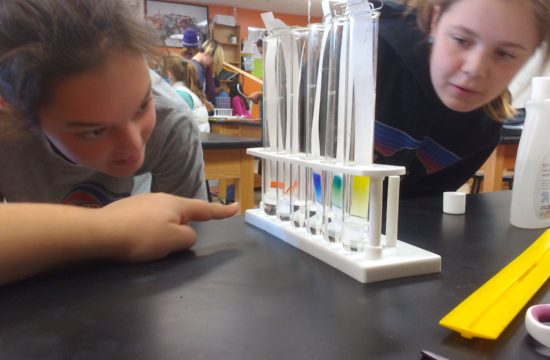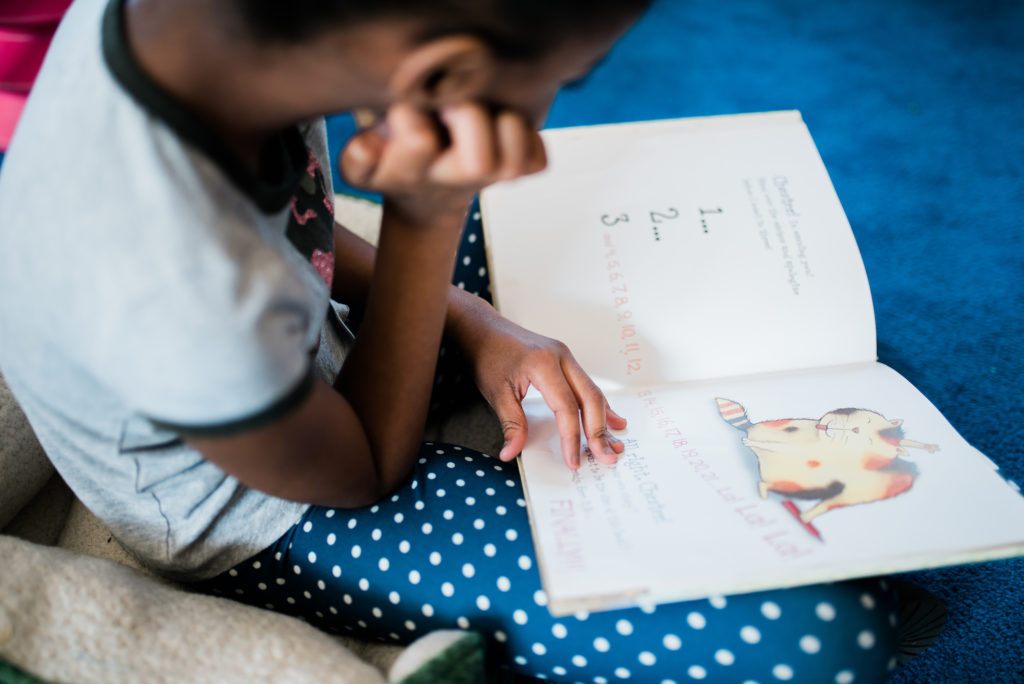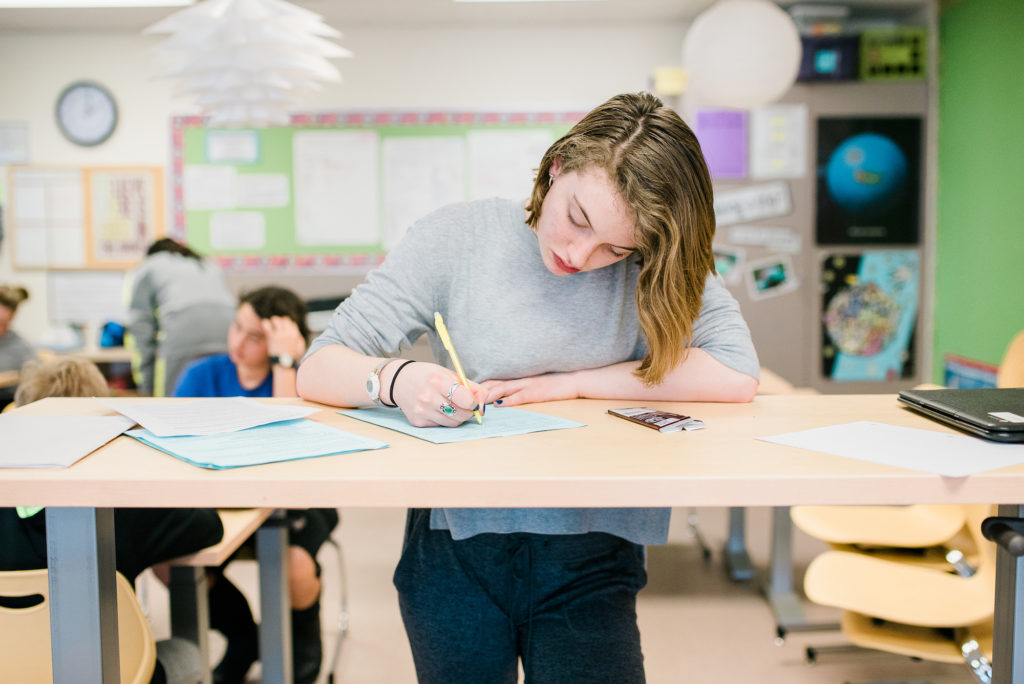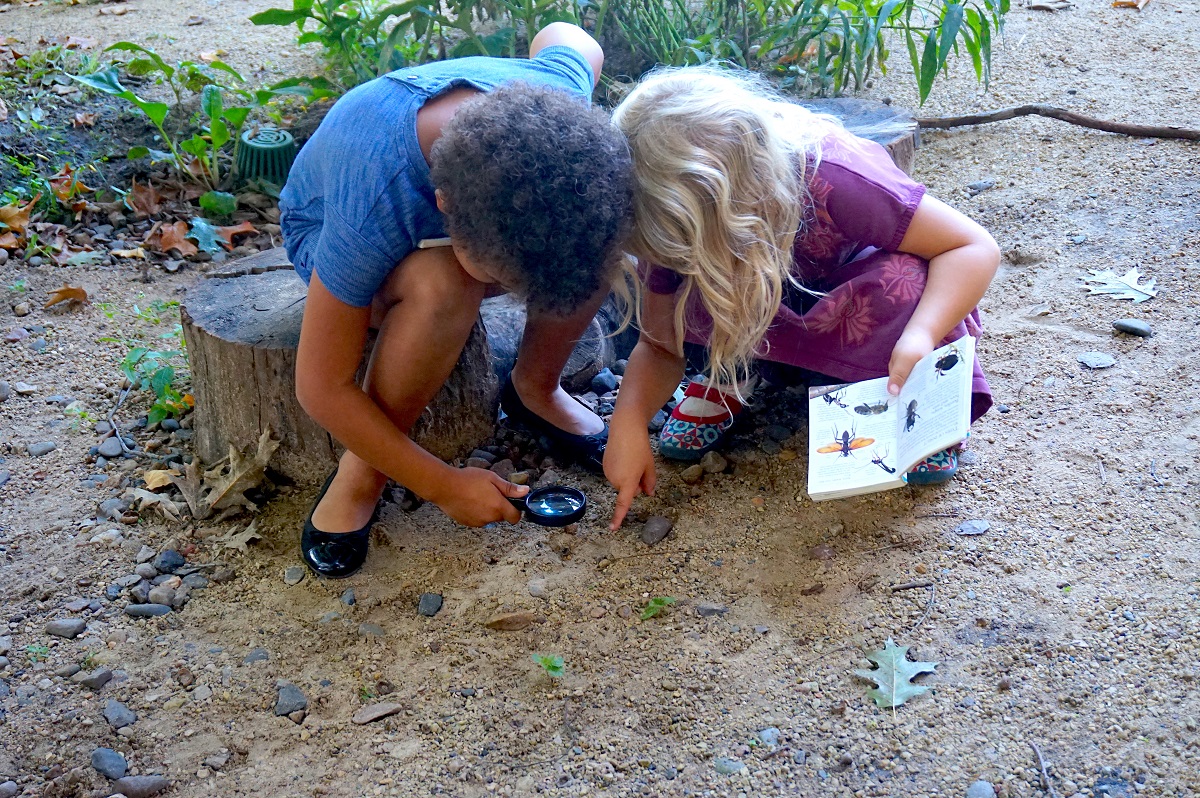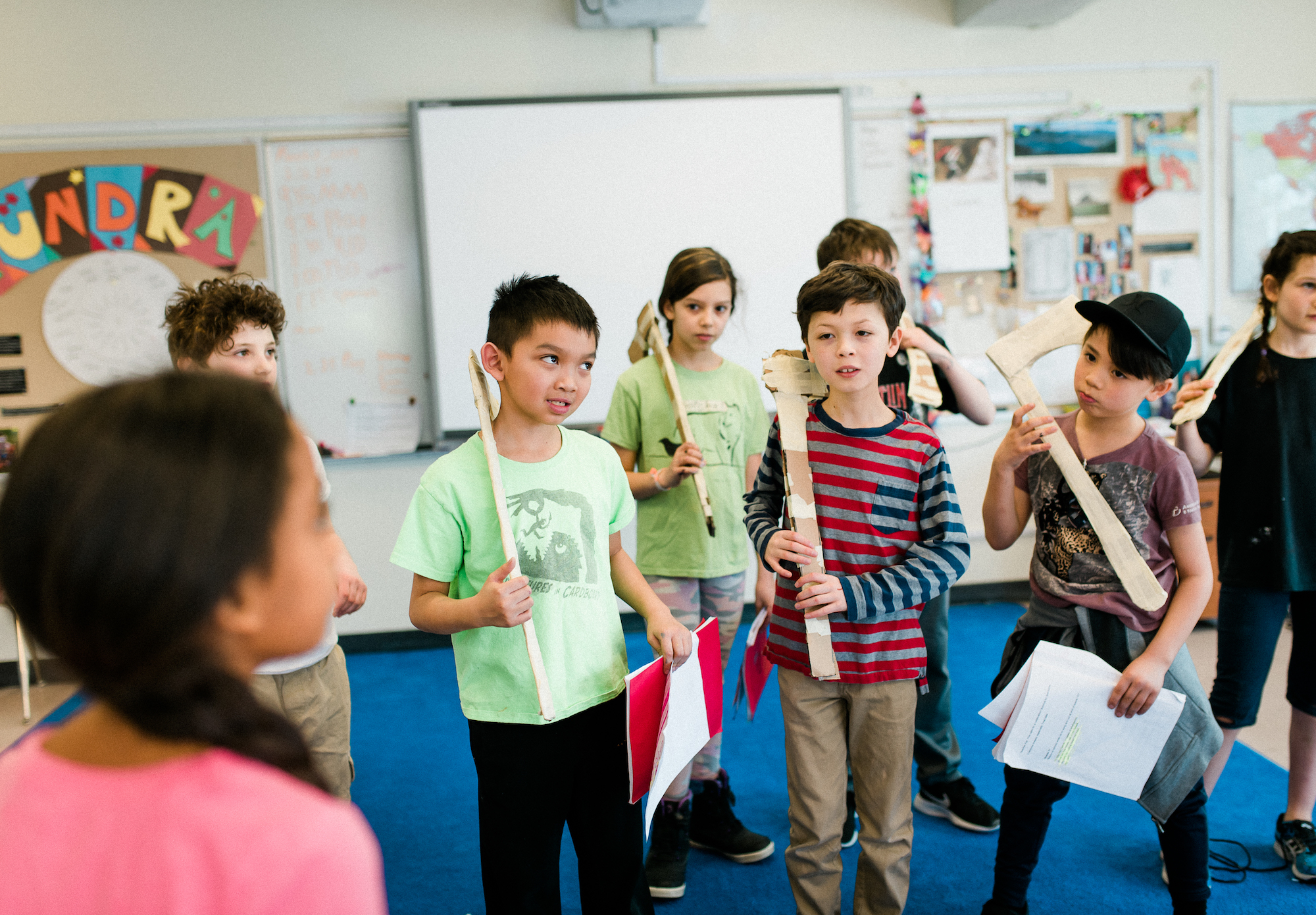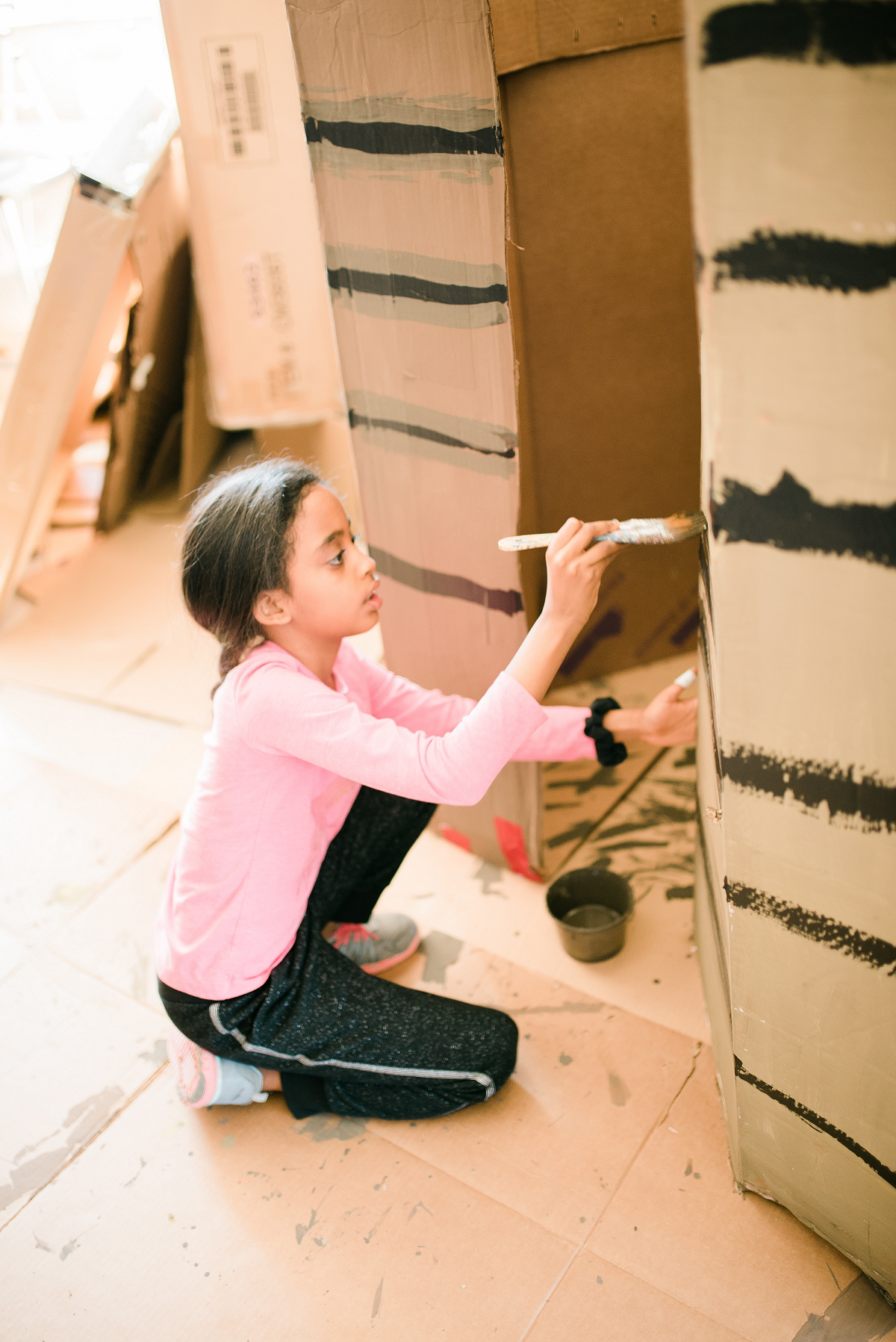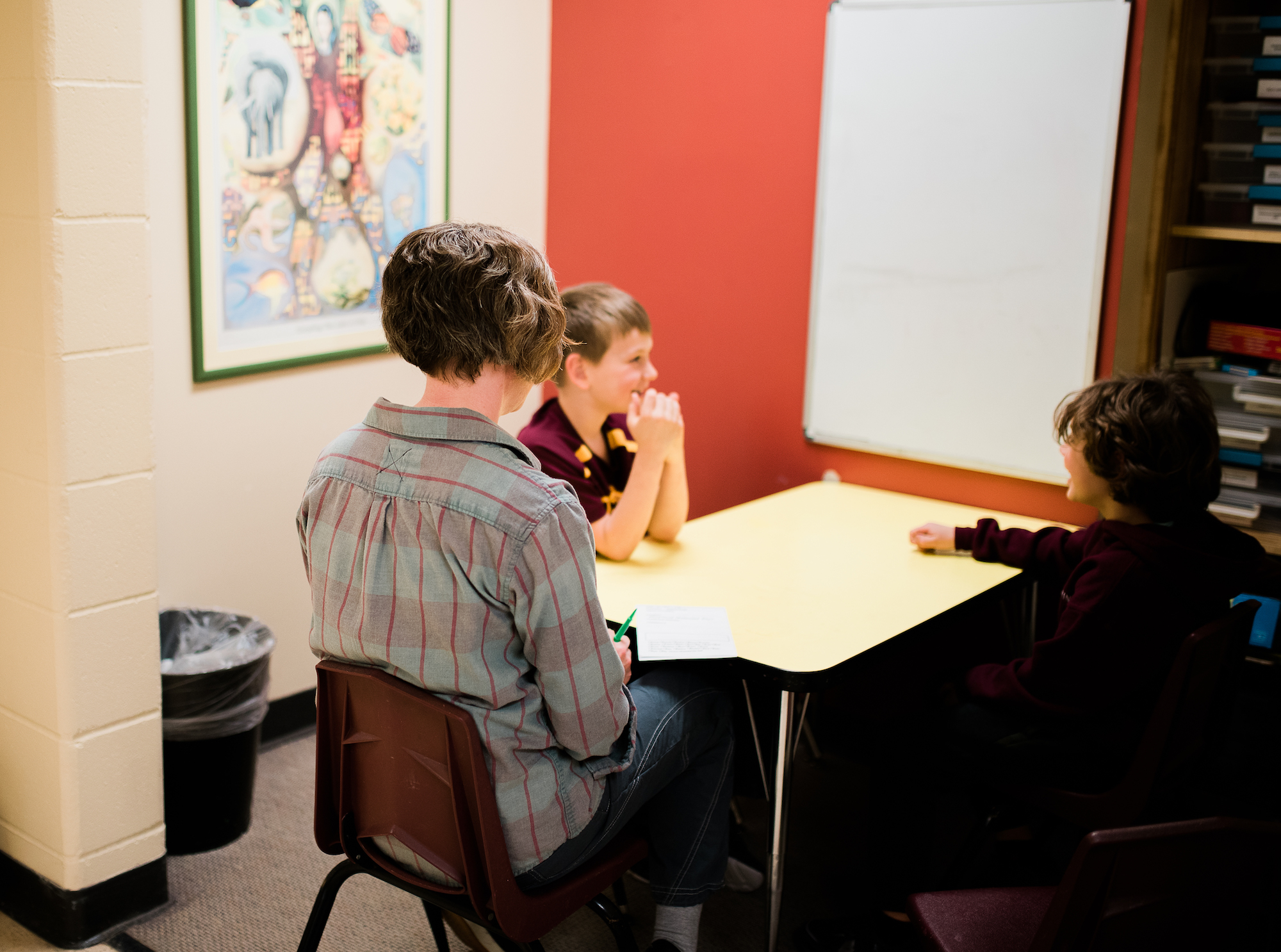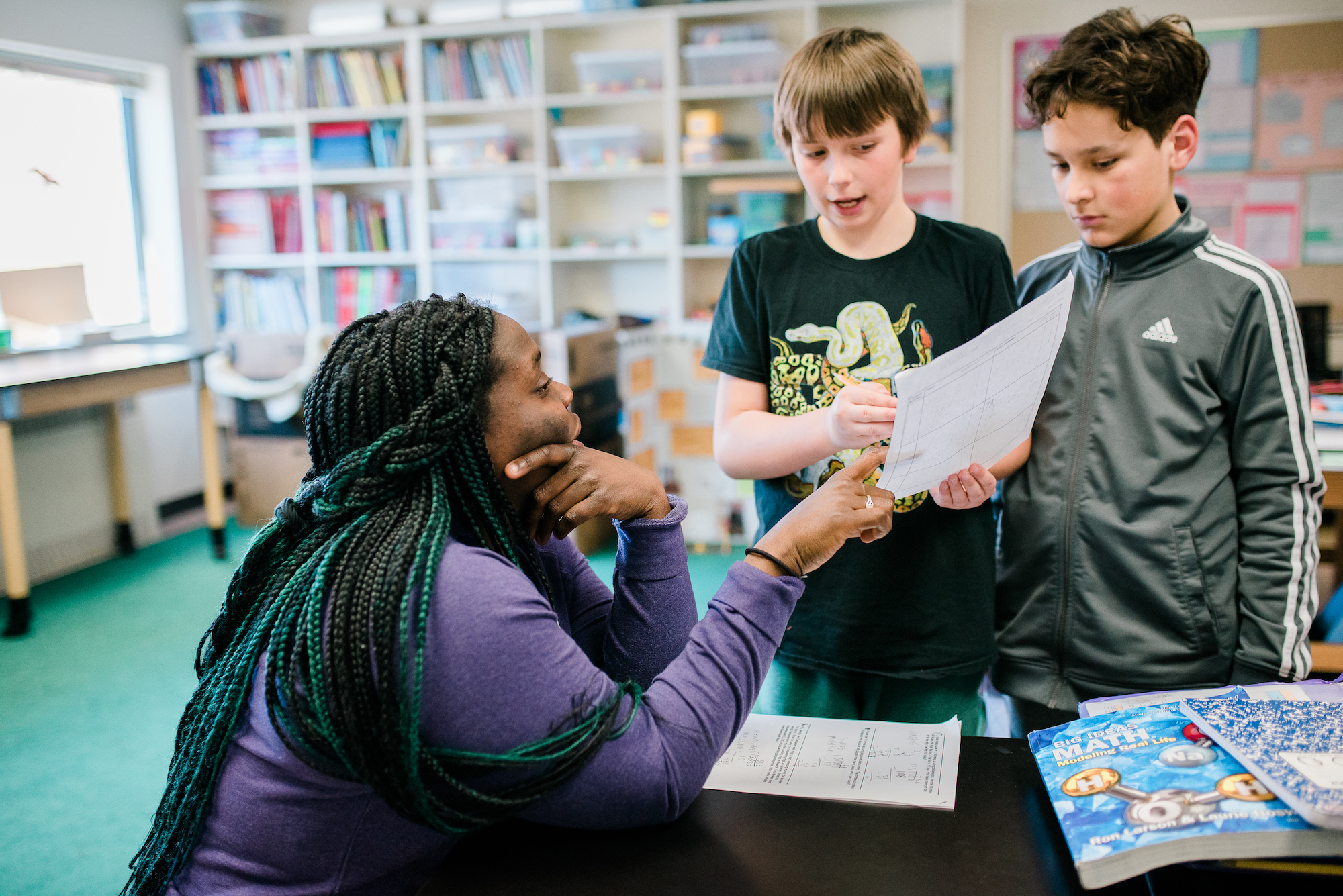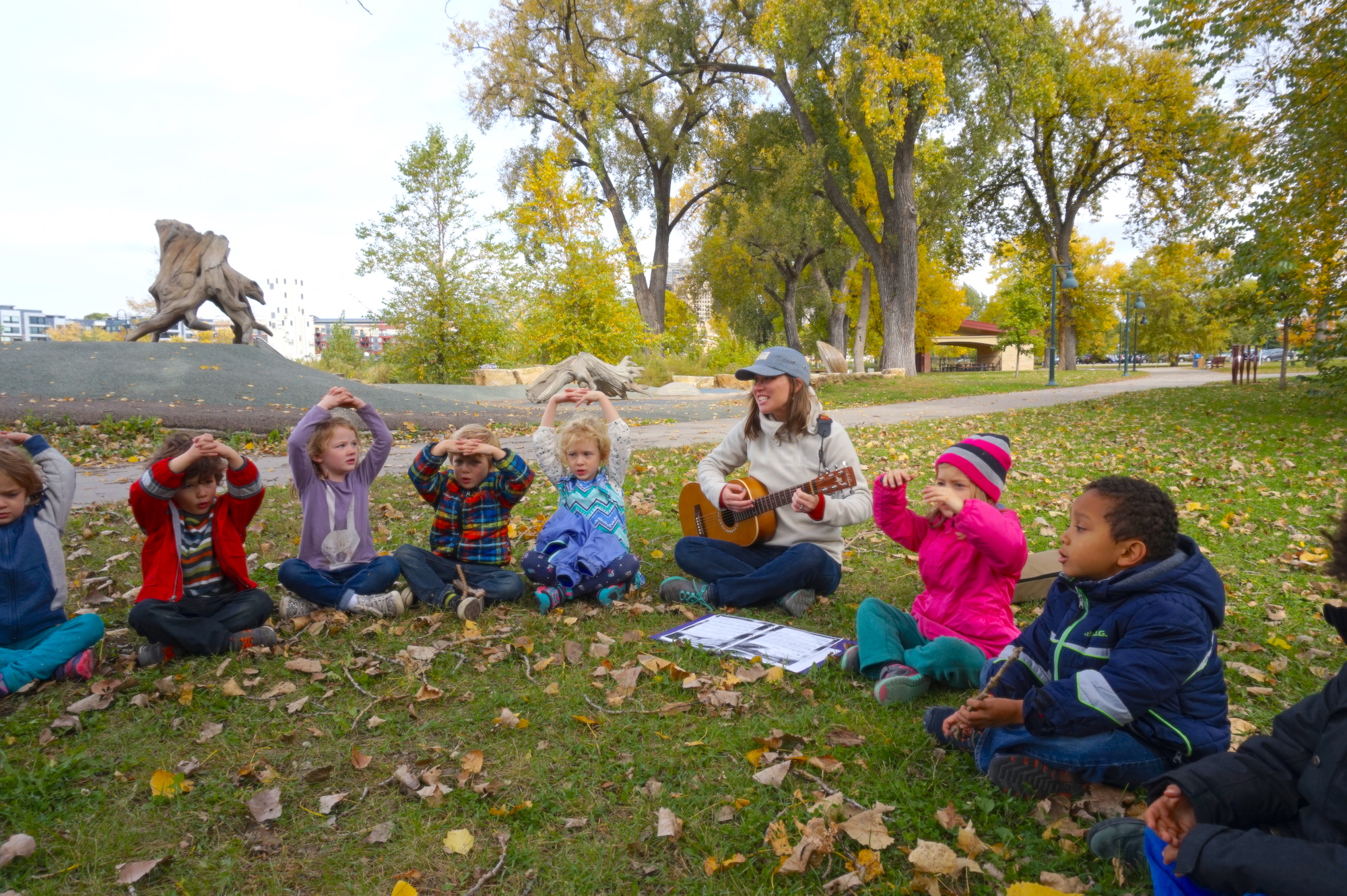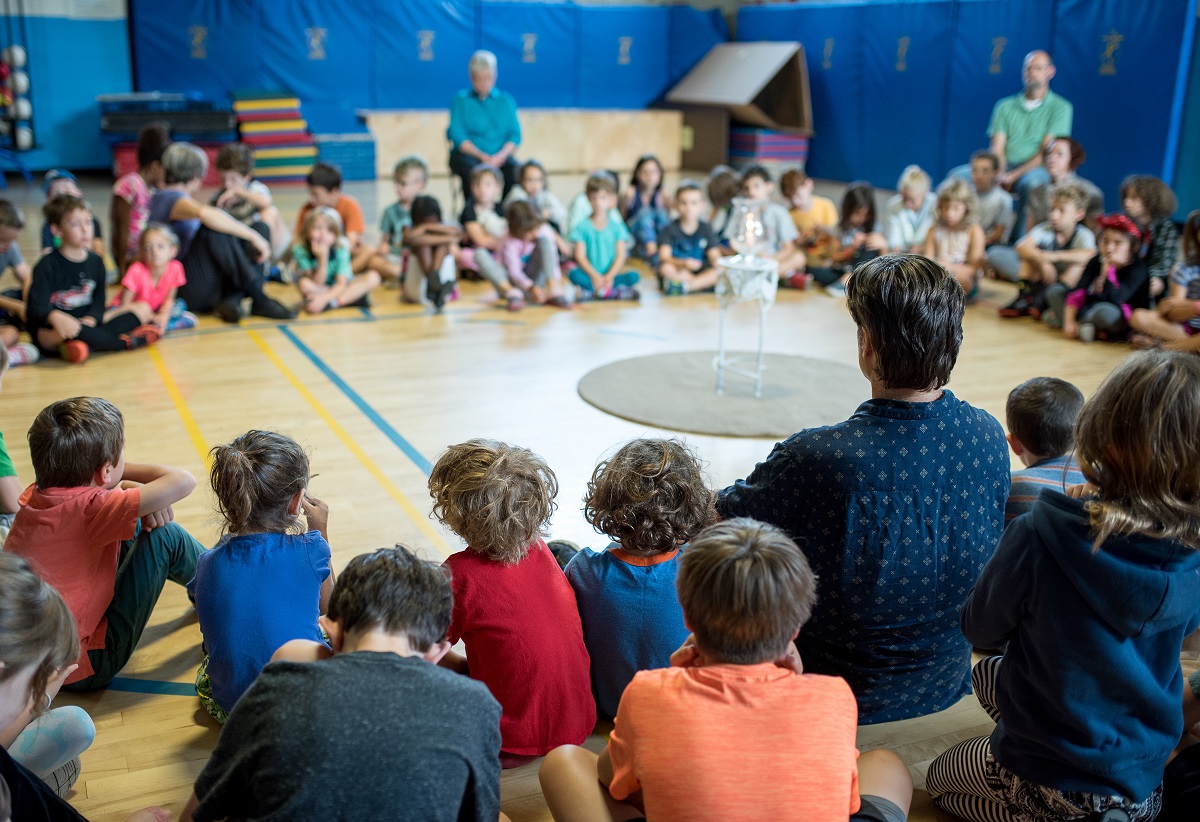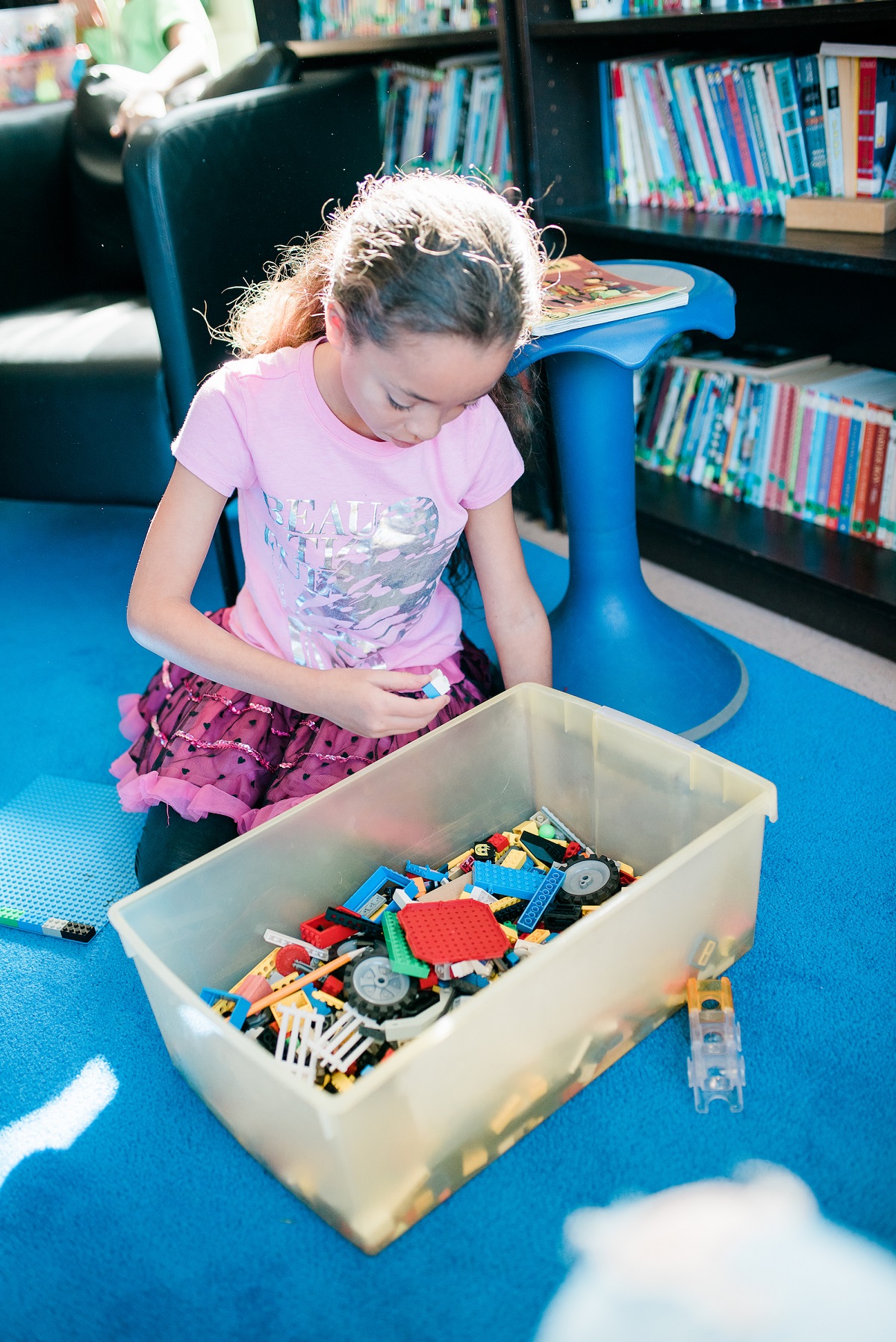The Questions Are the Answers
We live in a world where you can find answers in as much time as it takes to Google something.
How you approach work, how you get to those answers and draw conclusions, is much more critical. Our program teaches children to ask and explore complex questions from multiple perspectives. We use skilled observation and deep reflection to help draw conclusions. This thoughtful curiosity prepares our children to thrive academically.
Student-Led Learning
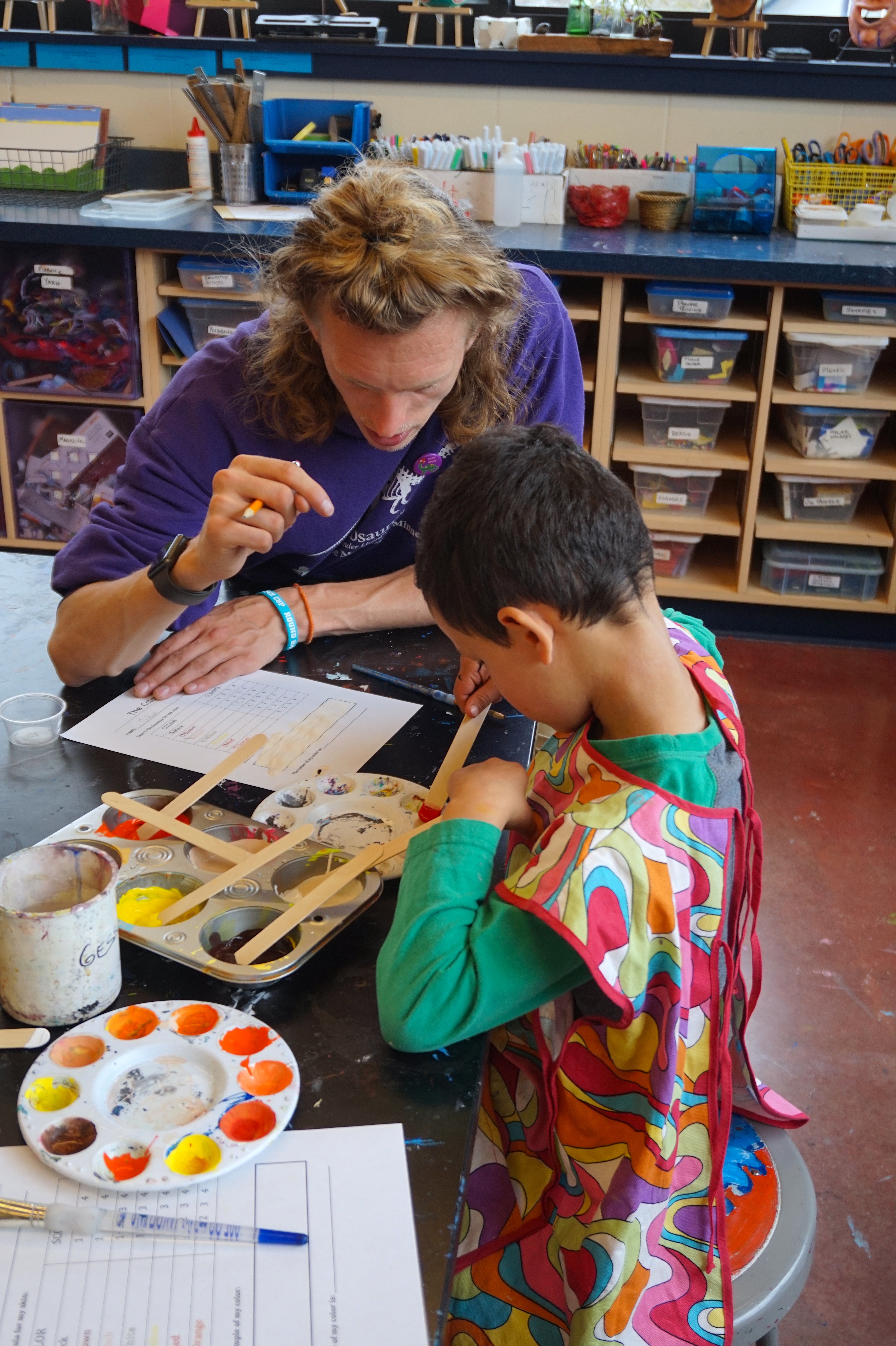
Students learn best when they have a connection to what they are learning. Our teachers listen to the questions our children ask, and they let those questions guide our studies. Those questions connect our children to their learning and deepen their knowledge.
Who Am I?
We examine perspective throughout our K–8 curriculum. Perspective is crucial to understanding oneself and exploring the question, who am I? What do I value? What do I do when my values are challenged? How do I listen when someone has a different perspective? Whose perspective is being left out?
“I love Friends School students. ‘They never ask, will this be on the test? They ask, whose perspective is this?”
A teacher from a high school with FSMN students
Exploring Perspective and Social Justice Work
Understanding perspective is foundational to social justice work. We begin discussing the concepts of bias, privilege, and equity through the lens of perspective as early as kindergarten.
This exploration deepens in middle school. Our students explore and reflect on complex questions. Whose perspective has been left out of American history? What are their stories? How do we listen to those stories and learn from them? How do we lift up those stories and honor them?
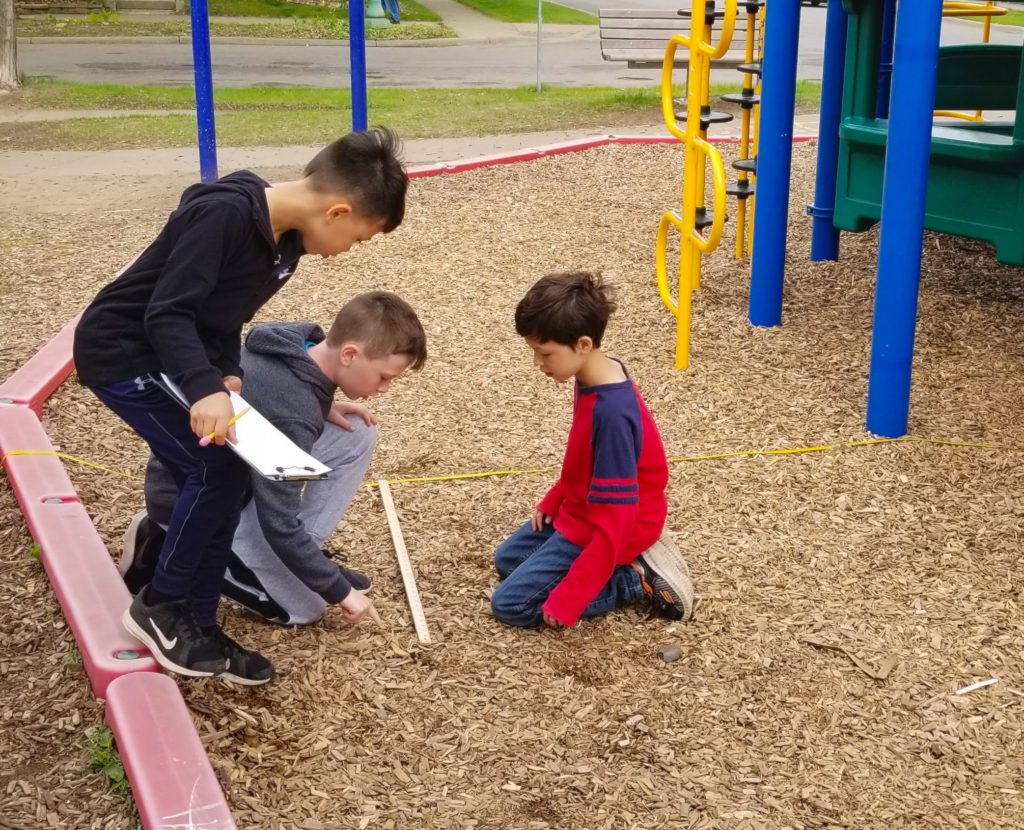
The combination of Quaker education and progressive education gives our children a spiritual foundation. Values and intellectual discipline guide this foundation and prepare our children for a rich and successful academic life.
Real Work, Real Learning
When we work with actual materials, on real projects, in authentic relationships, we deepen our learning.
“The activities during monthly field trips to Crosby Farm— finding the river speed and making phenology and cloud cover observations—make me a stronger critical thinker. These critical thinking skills make me feel like I will be better equipped for my life after graduating.”
Kaia ‘18
We learn by doing. Authentic materials and real projects give our children context. That context helps them genuinely learn about something instead of just memorizing a collection of facts. When we are in right relationships, we belong, and we understand how to collaborate and solve problems together, as a community. We also understand how to listen when we disagree and use our voice to speak up for ourselves.
A Conflict Resolution Program
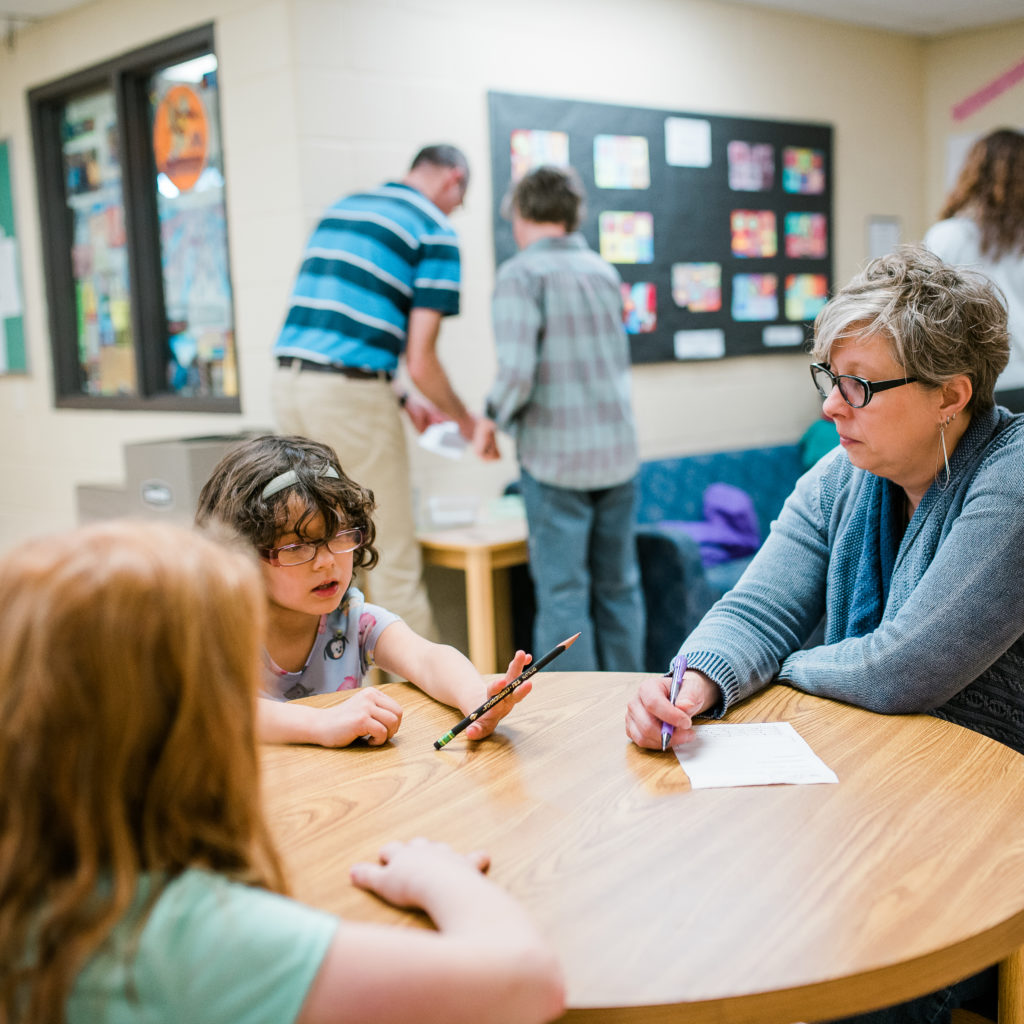
All FSMN students participate in our conflict resolution program. We know conflict is an integral part of life and learning. We teach and model how to treat each other with respect, resolve differences, and appreciate diverse points of view.
Integrated Arts Programs
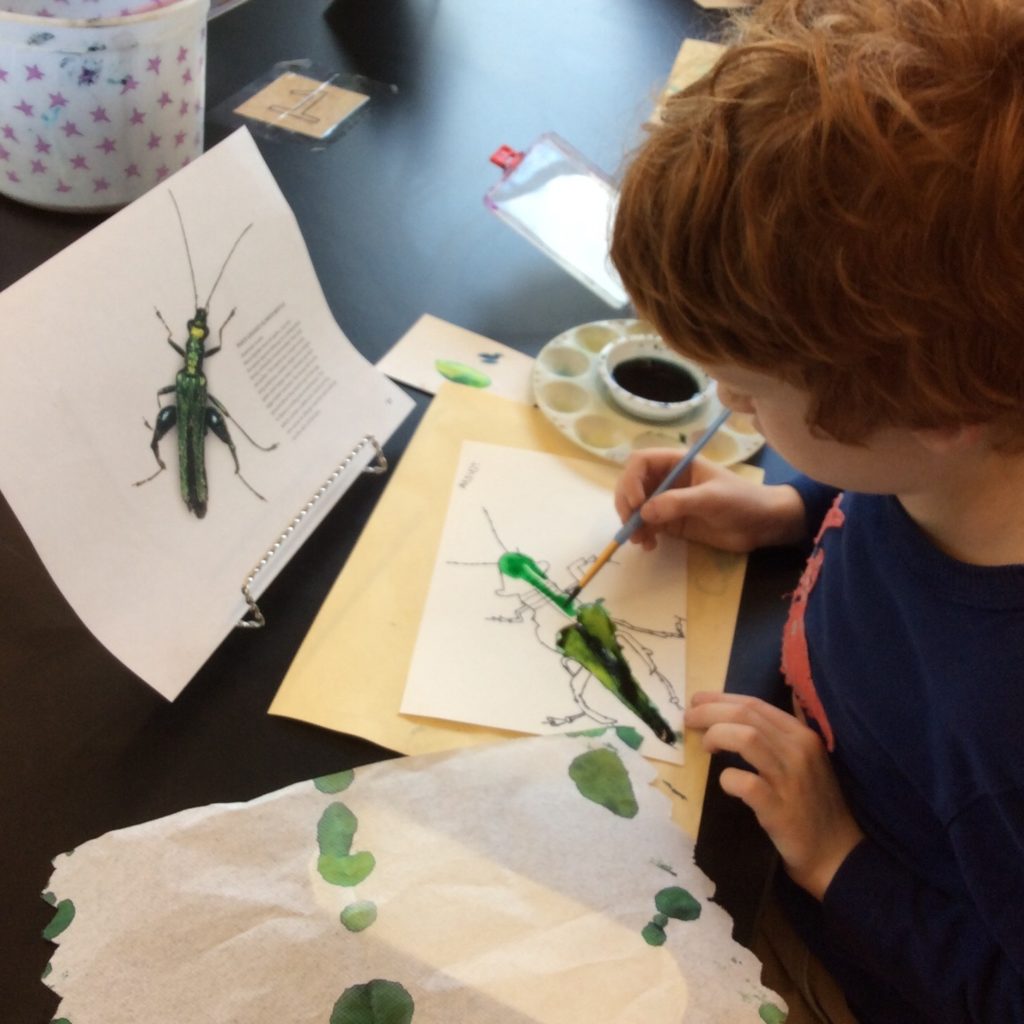
The opportunity to respond to, create, and perform in the arts is essential to the development of the whole person. Education includes learning through several disciplines: music, drama, dance, Spanish, and visual arts. There is also value in learning to enjoy these disciplines for their own sake.
Being Outside and Moving Our Bodies
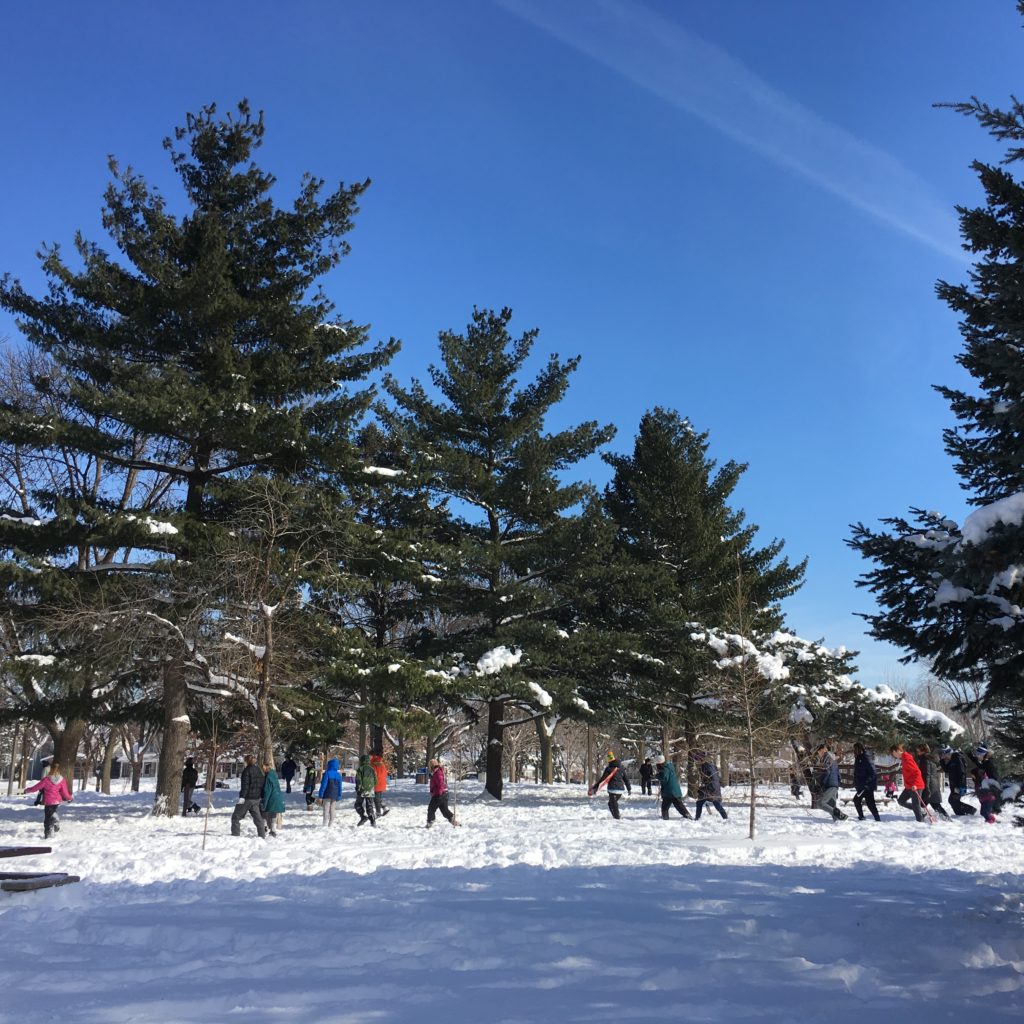
We dedicate ourselves to ensuring children get outside every day and that they get to spend time outside exploring and having fun. Our physical education program emphasizes how an active lifestyle enhances overall health, creates opportunities for social connections, and positively impacts one’s general outlook on life.
Environmental Education
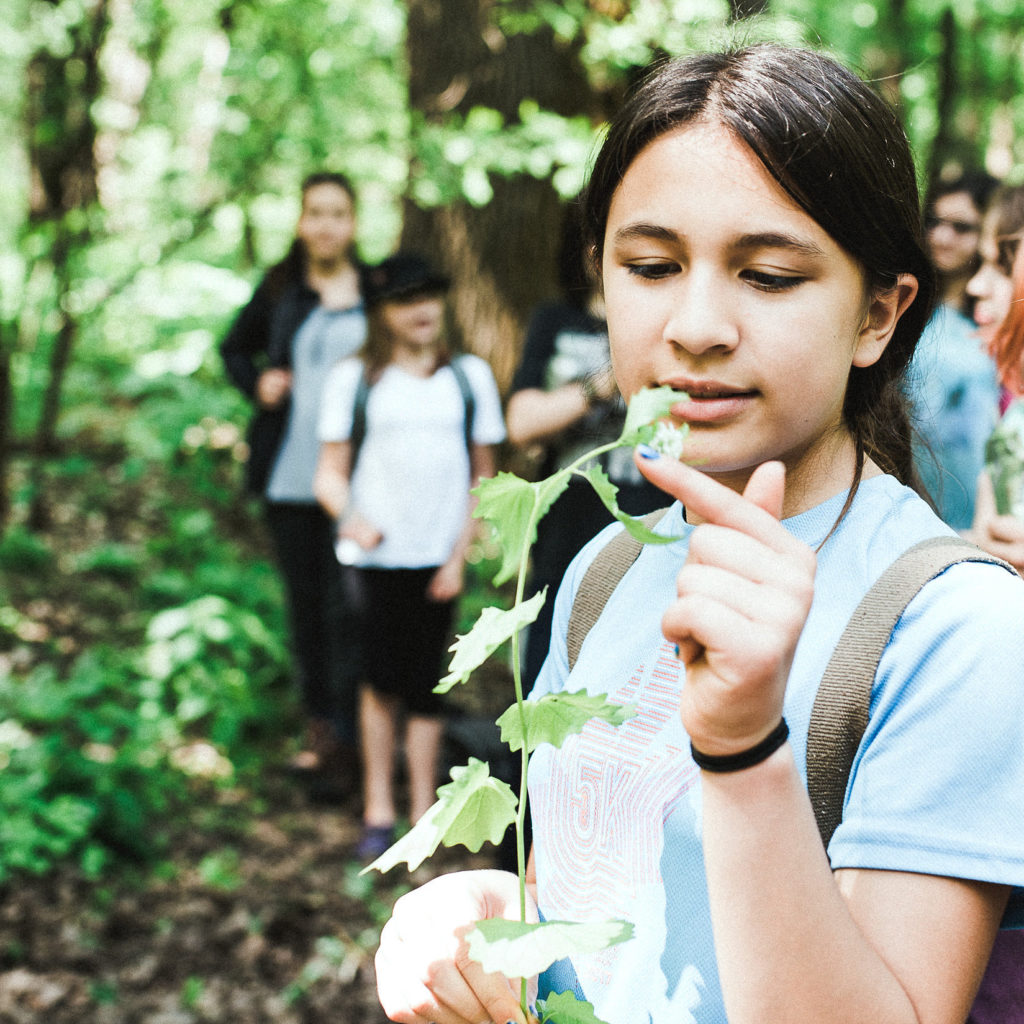
The environmental education program at FSMN seeks to prepare students to become citizens and stewards of the earth. The sense of awe and wonder with which young children explore their world is of utmost importance.
Mixed-Age-Groupings
Our classrooms are community gathering places to share, listen, sing, laugh, and learn. Creating a strong, vibrant, and diverse classroom community includes mixed-age-groupings. This structure provides flexibility to students whose growth is a series of sudden spurts rather than a linear progression. It creates a classroom where a wide range of abilities can collaborate and grow together.
We group students in mixed-age-classes in grades one through four. In middle school, we use mixed-age-groupings in advisories, humanities, music, and art.
Technology in Our Classrooms
Technological literacy is the ability to use, manage, and understand technology. Technology skills are important because they enable students to use technology as a tool for learning, both now and in the future. These skills also support a learning environment that is characterized by active, inquiry-based education that helps students engage in critical thinking and informed decision-making. The standards that FSMN has adopted for technology education include what students should know and understand about technology, and what they should be able to do at each grade level.
School Trips
Trips are an important element of progressive education at FSMN. School day field trips and overnights are integrated throughout the curriculum starting in kindergarten.
Classes make frequent day trips to places such as Crosby Farm on the Mississippi River, the Minneapolis Institute of Art, or Fort Snelling State Park, for example.
Starting in first grade, students go on class overnights. Younger children might spend a night at the YMCA Camp Pepin in Red Wing or Voyageurs National Park Association. Middle school students journey for three to five days to places like Wolf Ridge and Eagle Bluff. The culmination of our Environmental Education program is the 8th graders’ week-long trip to the Boundary Water Canoe Area through YMCA Camp Menogyn.
All of these trips support our academic program, help students develop skills, and serve to unite the community in positive ways.
Lower School Overview
Middle School Overview
A Day in the Life
As part of a typical day, I might…
“Education is not preparation for life; education is life itself.”
John Dewey

